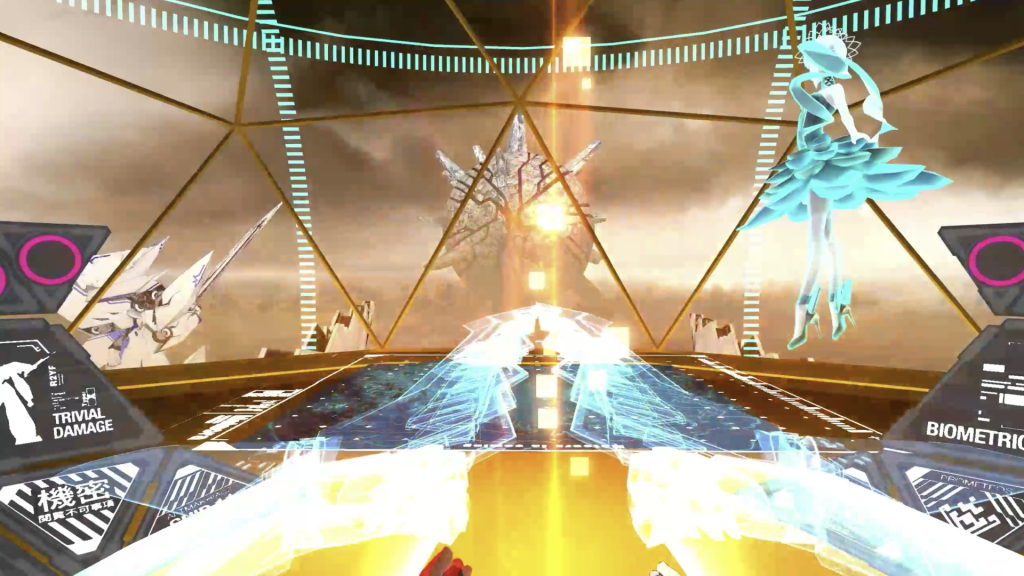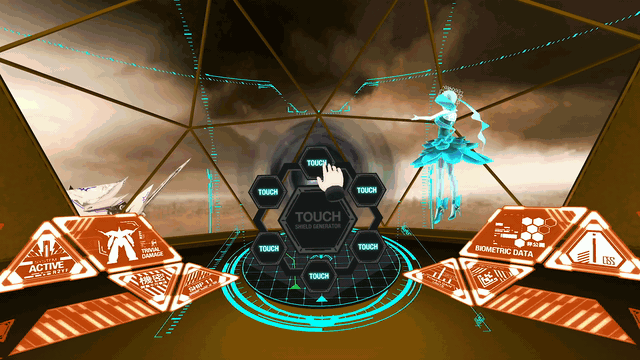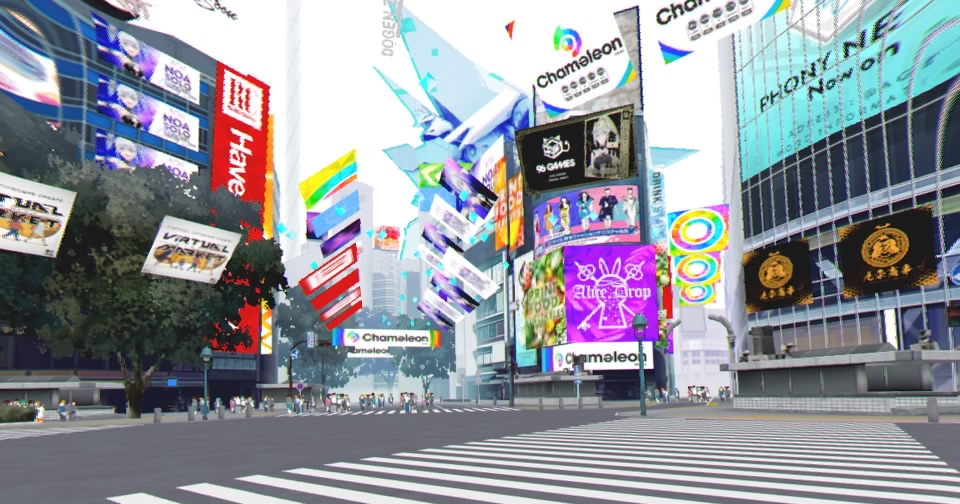Have you ever read a book? You know, those compilations of physical pages that you have to manually read and turn in order to experience a linear plot? I’m going to assume you probably have.
Now, have you ever read a choose-your-own-adventure book? A book that gives you the option to make choices that dramatically affect the course of the plot. Usually it will require you to flip to a particular page where your choice causes the story to branch off in a different direction. Goosebumps books were some of the most popular. It was exhilarating to know the choices I made could make such an impact (even if it mostly resulting in my character dying).
A visual novel (VN) is the evolution of this concept – a digital version of a choose-your-own-adventure book. The visual novel is a staple of modern gaming in Japan and often features intricate plot, strong character development, and branching narratives. The genre emerged in the early ’90s thanks to the advances in computer graphics and continued to increase in popularity well into the early 2000s. Some notable titles in the genre include the tear-jerking Clannad, time-travelling banana scientist in Steins;Gate, and internet favourite dating simulator, Katawa Shojo. As a well-established genre, there are even some visual novels about dating pigeons, or ones I’ve played that I probably shouldn’t mention in public.
Above: Clannad, Steins;Gate, Katawa Shoujo.
Thanks to VR game developer studio MyDearest, who have created VR novels and manga, the visual novel has now moved one step closer to reality. In 2019 their first game Tokyo Chronos became one of the first VNs to enter VR, and was successful enough to justify a sequel. Released initially for the Oculus Quest in 2020, ALTDEUS: Beyond Chronos garnered multiple awards and received critical acclaim. Now available for the PSVR, how does this version hold up? And is it good enough that it’ll make you want to throw out all your physical novels?
Plot
The year is 2280. The world has been ravaged by interdimensional aliens called Meteroa, which obliterate all life on the surface with weaponised sound waves. Humanity has been forced to withdraw underground into their last bastion, establishing a digital Tokyo with all of its citizens connected to a server. In attempts to retaliate, a group known as Prometheus recruits pilots for its Evangelion-sized mecha. You play as Chloe, an artificial human designed for the sole purpose of operating the Makhia and defending the remnants of Tokyo from complete annihilation.

Alongside Chloe at all times is the artificial-intelligence companion, AARC Noa, a part-time pilot, part-time idol, full-time sass machine, modelled off the consciousness of her recently deceased best friend: Coco Coconoe. Though Coco has been gone for 2 years after being devoured by a Meteroa, Chloe has frequent flashbacks of their time spent together, having learned the intricacies of human emotion from their many interactions. At times it feels as if Chloe can still feel her deep connection to Coco, hearing her voice whispering from beyond. Then, only hours into your journey, a fateful encounter with a mysterious Meteroa changes everything that Chloe has been led to believe…

Arguably the most important aspect of any visual novel is its plot, and ALTDEUS delivers one that is gripping, emotional, and has heavy themes of human connection despite the game’s many artificial characters. Featuring eight separate endings, choices made during character interaction and battle sequences bear significant weight and will drastically change your outcome.
Gameplay
If you’re playing a VN for its gameplay, you’re probably doing it wrong. As I discussed at the beginning of this article, this genre is akin to an interactive story where choices influence the plot. As such, gameplay in ALTDEUS is minimal and consists mostly of dialogue, character interaction, occasional use of the Move Controllers and the odd battle sequence. It’s fairly basic gameplay and completely approachable even to complete newcomers to VR – as most of the game is static, you’re very unlikely to experience any motion-sickness at all.

Scattered throughout the game are sequences in which you pilot the Makhia: a giant robot controlled by a “Neural Link” (your VR headset) and “Mikani Links” (your Move controllers). In connecting with the Makhia, you work alongside idol/AI Noa performing various actions to form shields, analyse the opponent, or charge and launch your rail cannon. Though each of these actions is incredibly simple to perform, your choice and timing will decide how the battle plays out. Initially I was blown away by these sequences, which feel as if you really are in the cockpit of a giant robot, but by the end of the game I had seen the same thing so many times that the novelty had worn off almost completely.

Visuals
A virtual reality game set in a virtual Tokyo should look like a virtual Tokyo, right? Right. During the game you’ll get to stand in the centre of Tokyo’s iconic Shibuya Scramble Crossing which is quite surreal; I found myself pausing momentarily to admire my surroundings in 360 degrees despite the low-resolution textures. Most other environments appear quite bland with little detail, though the clean character models with their distinct anime design will draw your attention away from this.
Sadly the game’s visuals are somewhat hindered and result in low-detail, blurry textures due to the limitations of the PSVR, as can be seen below:


There are however a couple of redeeming features to the game’s visuals. Sequences inside of the giant Makhia robots are impressive and look just as anime has led you to imagine: surrounded by with HUDs, screens and warning symbols. I was also blown away by the 360 degree concerts performed by Noa throughout the game, which transport you to a virtual concert space where you are truly immersed in the visuals during her performance as she sings and dances around you. It’s hard to fully describe and must be experienced first-hand.

Audio/Soundtrack
If you’re going to read through text for 15 – 20 hours, you may as well do so accompanied by some brilliant music. ALTDEUS’ soundtrack is a collaboration between multiple musicians:
– In-house composer Yosuke Kori.
– J-pop/electro musician kz(livetune) who has composed many anime openings.
– Kunuyuki Takahashi (MONACA), who arranged tracks for NieR and NieR:Automata.
– R!N who is well-known for her powerful voice in Attack on Titan’s vocal tracks.
Many of the background tracks convey a calm, wistful, and sometimes melancholic feeling, which is often reflected in the music that plays during the game’s frequent flashbacks. I’d relate this to the music in other emotional visual novels, think Clannad. This is juxtaposed by the high-tempo, upbeat idol-style songs that are scattered throughout the game’s virtual idol performances. I was most-impressed by the incredibly immersive, 360 degree anime opening that plays in the first hour of the game, which I imagine would be similar to attending a vocaloid concert.
It’s worth noting that the vocal tracks are some of the best I’ve heard in a game and are of such quality that they deserve their own standalone album. Below are a couple of my favourite tracks from the game:
An intense battle theme during the first Meteroa fight:
spotify:track:6wj5KqZndFTS9LyMKlS61B
One of the catchy, upbeat idol tracks that Noa sings:
spotify:track:20HnagpSAAxk7XHztcWmha
While I sing the soundtrack’s praises, it’s important that the voice acting too is up to scratch, as for the vast majority of the game you’ll be listening to character dialogue. You’re given the choice between an English and Japanese dub, and me being the weeb I am, I chose the latter. Not once did I tire of hearing any of the voice-acting, which has clear delivery, believable acting and even some serious emotional weight behind it during some of the more touching moments in the game. At times it felt just as if I was watching a quality anime production thanks to the voice acting of the game.
Conclusion
Having never previously played a virtual visual novel, ALTDEUS: Beyond Chronos is a PSVR game unlike any other I’ve encountered, and one I would highly recommend for those looking for a unique VR experience. Fans of anime too are also likely to get a kick out of ALTDEUS, as it clearly draws inspiration from series like Neon Genesis Evangelion and Macross.

With 8 separate endings, a branching narrative, and a gripping plot, it will take you approximately 20 hours to reach the true ending which is well-worth it for those willing to commit. Admittedly some choices can be obscure and frustrating, requiring trial and error likely to put off many players. Though it could have simply been made as a normal 2D visual novel, being completely surrounded by the game enhances immersion dramatically, especially during the game’s battles and emotional interactions.
While this may be my first VR VN, having enjoyed ALTDEUS as much as I did, I highly doubt this will be my last. And it could be your first too!
So, should you play it?
- You’re looking for a game with a gripping, emotional plot.
- Piloting a mecha has always been your dream.
- Are you an anime fan with a PSVR gathering dust? Time to dust it off.
- A necessary game for fans of J-pop and idol music.
But why shouldn’t you play it?
- Not a big fan of long dialogue sequences or cutscenes? Stay away from VNs as a whole.
- Playing through the same sequences may frustrate those with little patience.
A PSVR review code (played on PlayStation 5) was provided for the purpose of this review.
You can read more of our reviews HERE or over over at Gaming News Australia.








One comment